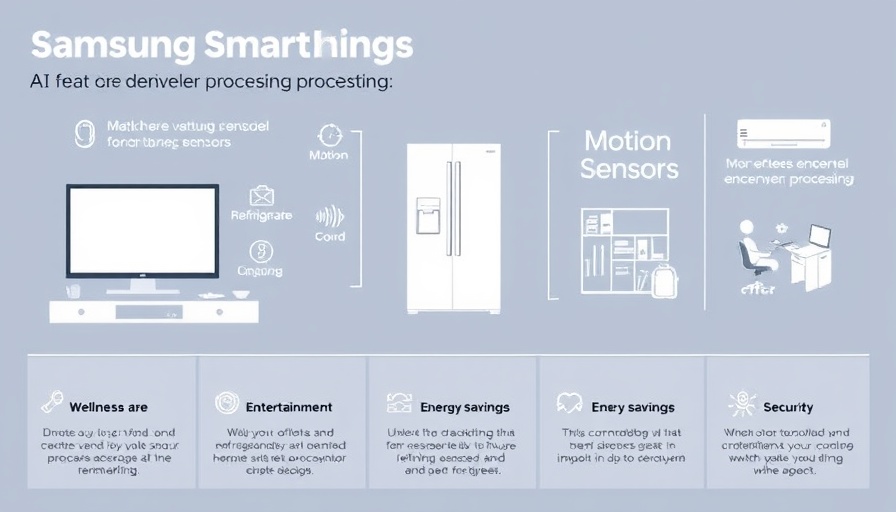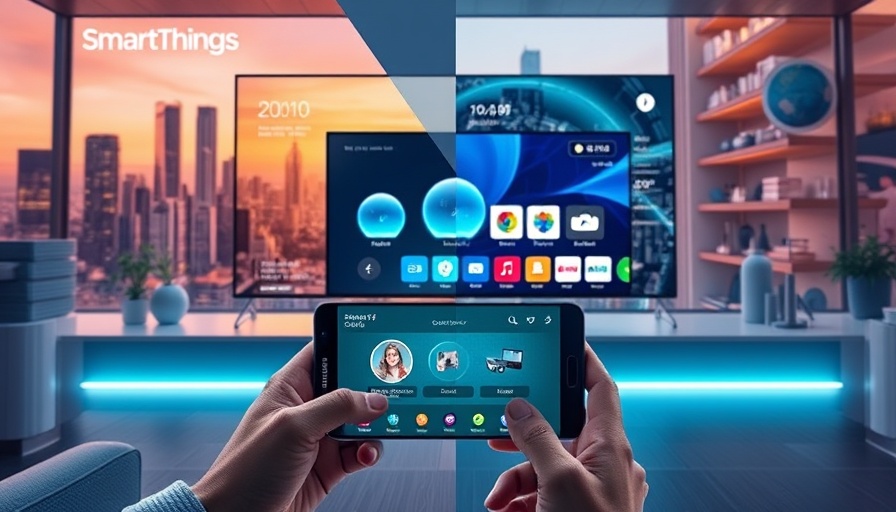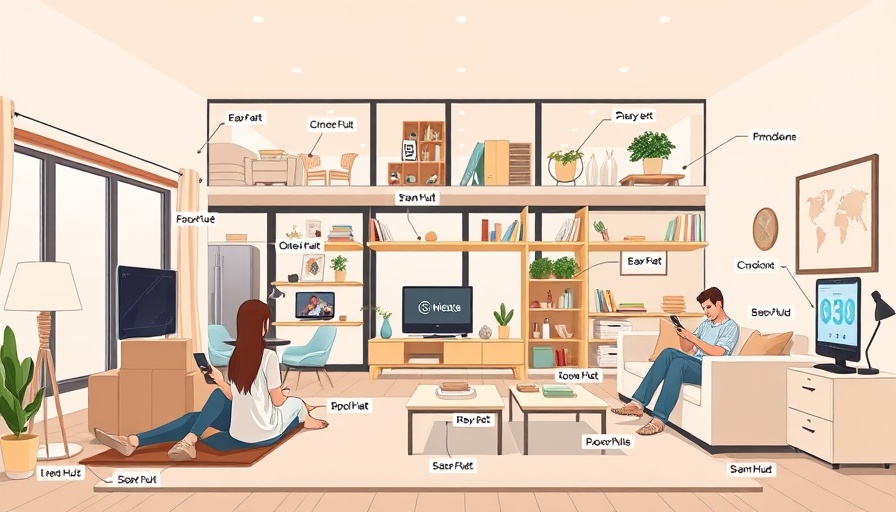
Revolutionizing the Home Experience: AI's Role in Smart Living
As technology continues to evolve, Samsung's SmartThings platform is stepping up the game with innovative AI features aimed at transforming the way we interact with our homes. Unveiled at the recent Unpacked event, SmartThings introduces a blend of ambient sensing technology and generative AI, offering a future where homes are not just smart but personalized to fit individual lifestyles.
With Smart Home Innovations Come Exciting Opportunities
For home service businesses, such as HVAC technicians, plumbers, and renovation contractors, these advancements signify a new era of customer engagement. SmartThings' ambient sensing technology will allow for tailored recommendations based on real-time assessments of 'living patterns.' For example, HVAC professionals could leverage insights from SmartThings to offer optimal heating or cooling solutions that correspond with the data collected from a user's daily routines.
How Ambient Sensing Enhances Home Comfort
Picture this: a customer is engaged in an at-home workout session. SmartThings can detect their activity and adjust the room temperature accordingly, creating a comfortable environment. This could lead to more satisfied clients who appreciate seamless technology integration in their lives. For businesses provided with access to data from SmartThings, the potential for proactive service grows exponentially.
Generative AI: Customized Solutions for Every Home
The new generative AI technology further positions SmartThings as a leader in the smart home landscape. The ability to capture images of furniture and adjust the interface accordingly allows homeowners to visualize their space in real-time. For service providers, this insight can serve as a unique selling point, allowing them to offer bespoke renovation ideas tailored to their clients' pre-existing preferences.
Staying Updated: The Key to Competitive Advantage
For home service businesses, remaining abreast of these technological innovations could be crucial in delivering cutting-edge services. By incorporating these advanced tools into their workflow, providers can offer more efficient and targeted solutions, which could lead to heightened customer satisfaction and loyalty.
Conclusion: Embracing Smart Technology in Home Services
In the ever-evolving landscape of home technology, the integration of SmartThings' AI capabilities is not just a trend; it represents a significant opportunity for home service businesses to distinguish themselves. Embracing these technologies can lead to more personalized services, boosted efficiency, and stronger relationships with clients. As we look toward the future, one thing is clear: success in the home services industry will increasingly depend on how well companies adapt to and leverage innovations like SmartThings to meet the needs of their customers.
 Add Row
Add Row  Add Element
Add Element 


 Add Row
Add Row  Add
Add 

Write A Comment